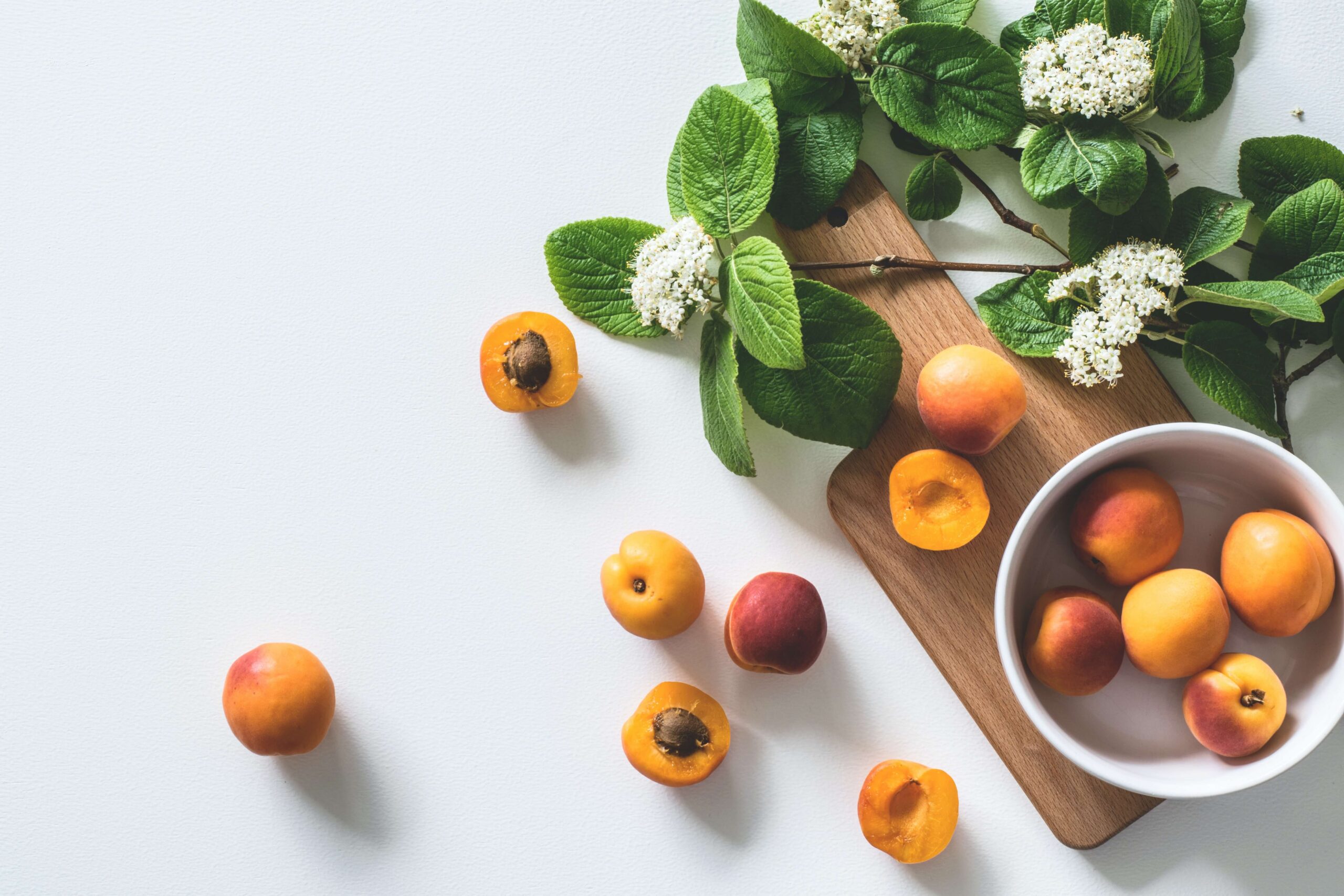Introduction
Hello friend!
Today I want to talk about a topic that has picked up quite a bit of heat recently: apricot seeds. This little seed has grown in popularity so much that I even have friends in other countries reaching out to me about them. I definitely understand the confusion.
After all, aren’t seeds healthy??
Ehhhh not so fast. These seeds carry a little (okay fine A LOT) greater of a risk than our beloved pumpkin, sunflower, or chia seeds. Like I always say, just as one food will not cause your cancer, one food will not cure your cancer either. Let’s get into where this idea of apricot seeds as a cancer treatment came from, the risks, and what to do instead.
The Origin of Apricot Seeds as a Cancer Cure
Apricot seeds contain a compound called Amygdalin. This was used to treat cancer over a century ago in Russia and even made its way to the USA. Amygdalin is a naturally occurring cyanogenic glycoside, aka it produces cyanide. It can be found in the pits and seeds of some fruits (apples and apricots) and raw nuts. It was repurposed into a drug known as laetrile.
Common theories why laetrile cures cancer:
1. Vitamin Deficiency
Laetrile, also known as B-17, is a man-made, “pure,” form of Amygdalin. Supporters claim that cancer actually results from a vitamin deficiency and, just like any other nutrient deficiency, one way we can cure and prevent it is by incorporating more foods that contain that nutrient (apricot seeds). In reality, this is not an essential nutrient and it is not required for good health. The American Institute of Nutrition Vitamins has not approved Vitamin B-17 as a vitamin.
2. Kills cancer cells, but leaves healthy cells alone
Another theory is that the cyanide which is produced when one consumes laetrile can kill cancer cells while leaving our healthy cells untouched. Unfortunately, this is not the case.
What does the research show about Apricot Seeds?
Not only are apricot seeds ineffective as a treatment, but they also can be dangerous due to their conversion to cyanide. Almost every animal study shows negative results when implanting cancer cells into rodents and treating them with laetrile (the “pure” form of amygdalin). The animals did not have any reduction in tumor size or reduction in growth – many of them also got cyanide poisoning.
NO research in humans shows that Amygdalin can treat or cure cancer. There have only been 2 clinical trials in humans. The first was a very small sample size – 6 patients. This was a phase 1 study – they found no efficacy of using amygdalin to treat cancer. The second study, a phase II trial, looked at 175 breast, colon, or lung cancer patients. By the end of the study, half of the patient’s cancer had grown. 7 months later, cancer had grown in all patients. These patients also experienced liver damage, droopy upper eyelid, trouble walking due to damaged nerves, fever, confusion, coma, cyanide toxicity, and cyanide poisoning.
The only evidence we have of laetrile as an effective cancer treatment comes from studies done on cells in a test tube! Those results have NEVER translated into humans. There are NO controlled clinical trials in humans showing its effectiveness. Most of the data we have around laetrile as a cancer treatment are from anecdotal data which has its limitations. We cannot control for other factors that could influence the end results, and treatment centers can cherry pick their success stories while sweeping negative results under the rug.
Apricot Seeds Dose
People will argue “Oh, but this is natural” making you think its safer, cleaner, etc, but the truth is whether something is “natural” or not does not tell you how safe it is. It is the dose that makes the poison. Roughly 50 to 60 kernels of apricot seeds could be lethal, but smaller amounts than that still have the potential to cause cyanide poisoning. Individuals may have varying thresholds regarding how much cyanide can trigger symptoms of poisoning.
Signs of Cyanide Poisoning
- a headache
- dizziness
- weakness
- mental confusion
- nausea, vomiting, and abdominal cramps
- convulsions
- circulatory problems and cardiac arrest
- Difficulty breathing
- coma
- Death
Proponents of apricot kernels may recommend around 6-10 kernels daily, but this can actually be dangerous, especially for those with cancer. Cyanide poisoning can make someone sick, requiring their treatment to be stopped altogether.
For those who decide to take apricot seeds INSTEAD OF traditional cancer treatment, they run the risk of having their cancer grow and spread in addition to their poisoning.
How Can You Reduce Your Cancer Risk?
I hammer down the main cancer prevention guidelines in greater detail in two previous posts:
8 Ways to Reduce Cancer Risk Part 1 and 8 Ways to Reduce Cancer Risk Part 2.
Here are the short versions to start reducing your cancer risk right now!
- Increase your intake of fruits and vegetables
- Remove alcohol
- Avoid being sedentary – increase daily movement
- Remove tobacco products
- Limit processed foods and sugary drinks
- Remove processed meats and limit red meat
- Do not take high dose supplements to reduce risk
- Limit exposure from UV rays
In Closing
It is very dangerous to take apricot seeds or laetrile as it will not treat the disease and will likely cause cyanide poisoning! Taking apricot seeds or laetrile can cause serious damage such as coma or death. Choose the fruit instead and snack on other safer seeds instead!
One of my favorite parts about what I do is restoring the confidence and freedom around food for survivors that was lost somewhere along the way throughout their cancer journey. Dealing with cancer is stressful enough and when you fear food on top of it, it can cause additional mental/physical strain and can even impede you from properly fueling yourself during treatment. I want you to feel energized no matter what stage you are at in your cancer journey. That’s why I compiled the cancer nutrition basics in my Cancer Simplified Membership. Inside, you get access to the modules, recipes, and more so you can break up with doctor google. Are you ready? Lets do this! Click here to join!
References
- Laetrile/Amygdalin. National Cancer Institute. June 2, 2022. Accessed September 23, 2023. https://www.cancer.gov/about-cancer/treatment/cam/patient/laetrile-pdq.
- Facts about cyanide. (2018).
https://emergency.cdc.gov/agent/cyanide/basics/facts.asp - Geng C. What is vitamin B17 and which foods contain it? Medical News Today. August 22, 2023. Accessed September 24, 2023. https://www.medicalnewstoday.com/articles/b17-vitamin.
This blog is not intended as medical nutrition therapy, medical advice, or diagnosis and should in no way replace consultation or recommendation from your medical professional.



